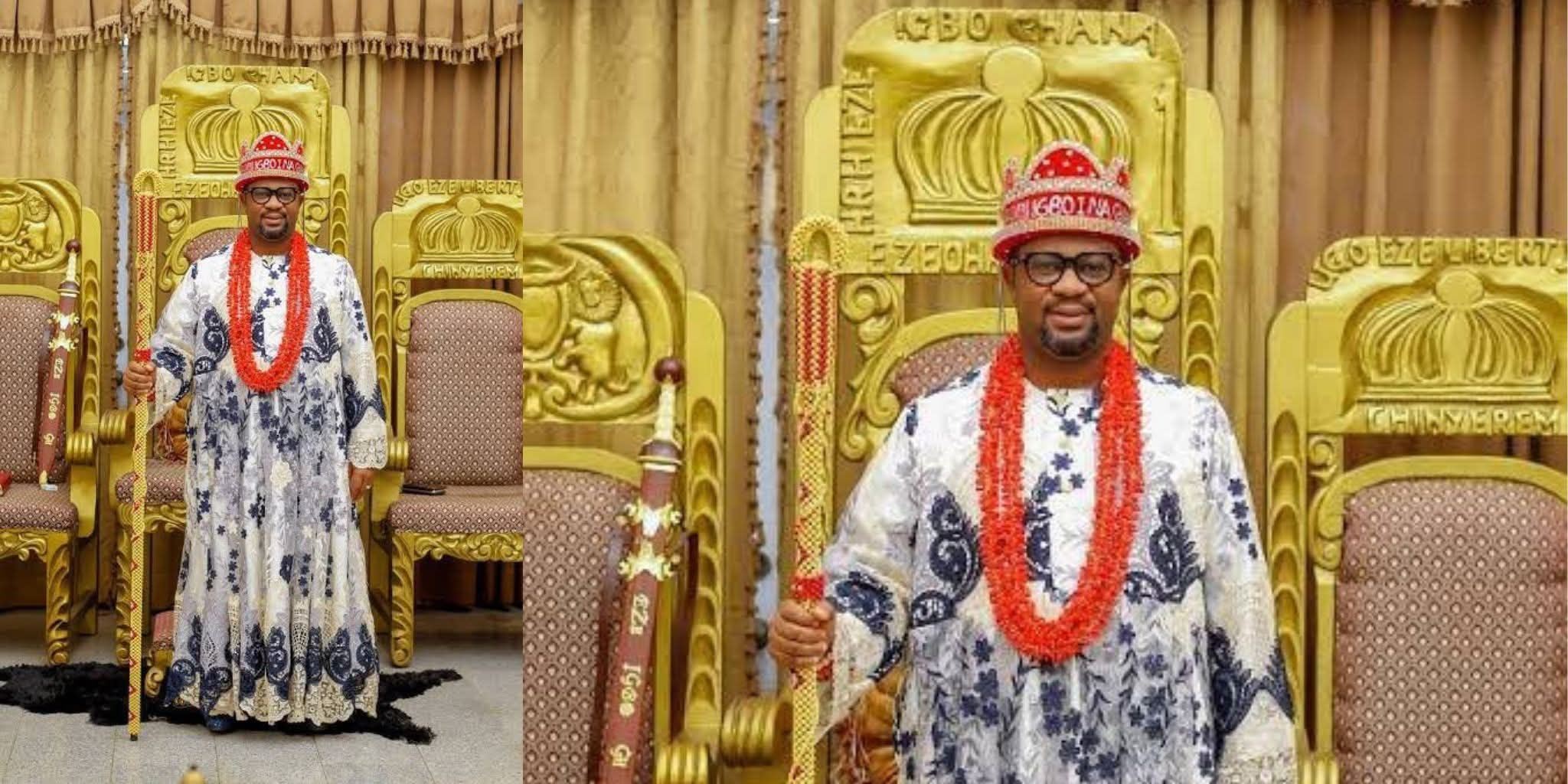A wave of protests and heated public discourse has swept parts of Ghana following the installation of a traditional Igbo ruler, Eze Chukwudi Ihenetu, as “Eze Ndi Igbo Ghana” (King of Igbo People in Ghana), sparking a complex debate over sovereignty, cultural identity, and the boundaries of foreign community leadership.
The uproar, spearheaded by youth organisations in Accra and the Eastern Region, intensified after images circulated online showing Eze Ihenetu’s grand palace in Accra, adorned with regal symbols and elaborate architecture.

Protesters, carrying placards reading “No Foreign Thrones in Ghana” and “Honour Our Heritage,” argue that installing foreign monarchs undermines Ghana’s chieftaincy system and national sovereignty, according to Ghana Web.
While the title of Eze Ndi Igbo is largely ceremonial within the Igbo diaspora worldwide, many Ghanaians fear it could set a dangerous precedent for other foreign communities to establish parallel royal institutions in the country.
Critics point to rumours—though so far unverified—of alleged land acquisitions aimed at building an “Igbo town” or even an “Igbo kingdom” within Ghana.
“It is a disturbing development creeping up in Ghana,” one of the Ghanaian critics of the monarchy said in a video on BIGMAN TV. “Ghana is a sovereign country. Our kings and chiefs have historical roots tied to our lands. We cannot accept foreign thrones that might infringe on our sovereignty.”
Media personality Captain Smart recently stirred mixed reactions among Ghanaians on social media after a video surfaced showing him kneeling before the Igbo royal leader in Ghana.
In the footage, Captain Smart is seen paying homage to Ihenetu during a ceremony chaired by the monarch. The video has since gone viral, fuelling widespread debate online.
The ceremony has drawn further scrutiny as it follows an alleged comment by Ihenetu that he planned to establish a 50-acre Igbo kingdom in Old Ningo — a proposal that has sparked significant backlash.
Some Ghanaians have urged the Ministry of Chieftaincy and Religious Affairs to intervene, seeking clarification on whether Ghanaian law permits foreigners to hold royal titles within the country.
In response to the growing tensions, Eze Chukwudi Ihenetu and other Igbo leaders insist the kingship is purely symbolic, intended to serve as a unifying figurehead for Igbos in Ghana. Speaking in a recent interview, Eze Ihenetu stated: “The throne of the Diasporan Igbo in Ghana is meant to protect, defend, and project the Igbo people and Nigerians as a whole. We have no political authority or territorial ambitions in Ghana. This is purely cultural.”







